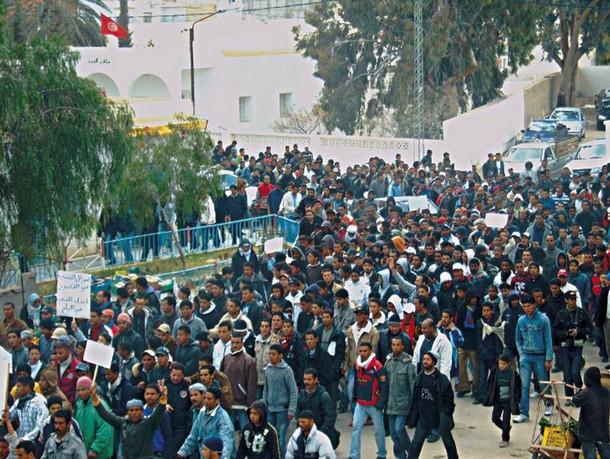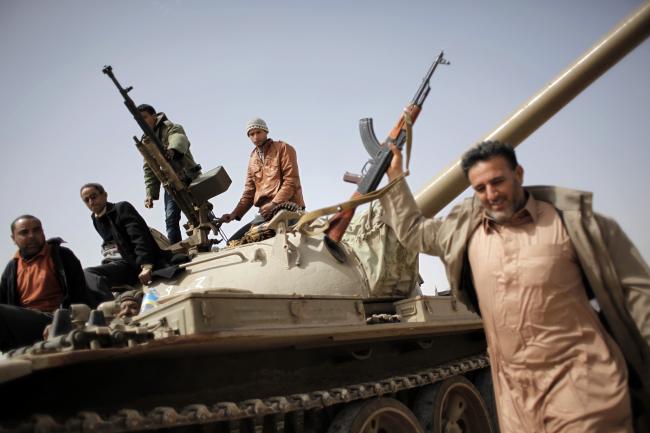Two resolutions were adopted on the Arab revolutions which are below. The general perspectives text will be published shortly.
* * *
Swaziland: (Updated April 15) Monarchy cracks down on pro-democracy protests
By Peter Kenworthy
(Earlier reports and statements below.)
April 14, 2011 -- Pambazuka News -- Swaziland’s minister of foreign affairs and international cooperation, Lutfo Dlamini, called the brutally crushed peaceful protest or uprising against Swaziland’s absolute monarchy, that lets a small elite live in luxury while two thirds of the population live below the poverty line, a “failure” yesterday.
I beg to differ. In fact, the so-called “victory” of the regime against the demonstrators, whose call for democracy and rule of law in the absolute monarchy that is Swaziland, may turn out to be a pyrrhic one, making Swazi’s less likely to accept reformist measures once the inevitable change that most people want comes.
Because while the demonstrators didn’t manage to amass the numbers they had hoped for, this was mainly due to the intimidation, blocking tactics and violence of the police and security forces that did everything they could to stop people from assembling in Manzini.
Sri Lanka: La 'Guerra de colonización' contra los tamiles
Por Chris Slee
[English at http://links.org.au/node/2210.]
El sitio de Internet Tamilnet acusó al gobierno de Sri Lanka de declarar la “guerra de colonización” contra los tamiles que viven en la isla de Sri Lanka. El gobierno ha establecido asentamientos singaleses en áreas tradicionalmente ocupadas por los tamiles. Dicho sitio compara esta situación con la política israelí de establecer asentamientos judíos en el “West Bank” e indica lo siguiente: “...Sri Lanka desea crear lo más rápido posible una situación similar al modelo israelí". [1]
Del mismo modo que Israel usa a los asentamientos judíos para separar las áreas habitadas por palestinos en pequeños fragmentos, intentando así imposibilitar un estado palestino, Sri Lanka utiliza los asentamientos singaleses para separar las áreas tamiles del norte y del este de Sri Lanka, con el objeto de imposibilitar un estado tamil independiente.
Egypt’s revolutionaries fight the army, and win: eyewitness report and photo essay
[The following eyewitness report from Cairo's Tahrir Square was provided by Australian journalist Austin Mackell and first appeared at his website, Moon Under Water. It is posted at Links International Journal of Socialist Renewal with his permission.]
* * *
Story, video and photos by Austin G. Mackell, Cairo
April 9, 2011 -- Moon Under Water -- The ongoing revolution in Egypt has taken a dramatic turn, with protesters successfully resisting an assault by the army on Tahrir Square.
Why George Monbiot is STILL wrong on nuclear power

By Ricardo Sequeiros Coelho
April 6, 2011 -- Cool the Earth -- George Monbiot has decided to fight back and justify his pro-nuclear stance. He directs his aim at what he calls double standards from environmentalists, making all sorts of accusations that only serve to diminish his credibility (see Monbiot.com). It is worth looking at them in detail, but a prior point should be made.
In the debate over nuclear power, Monbiot did not explain whether he was is merely arguing against the closure of existing nuclear plants or if he was further, arguing for building new ones. These are two different issues and conflating them is an important part of his deceptive arguments for nuclear power.

Mass protests in Tunisia, January 2011.
By the Communist Workers' Party of Tunisia/Parti communiste des ouvriers de Tunisie (PCOT)
Translated by John Catalinotto for Tlaxcala
Two and a half months have passed since the glorious revolution of January 14. During this period, the people have made significant progress through their struggle and sacrifice.
South Africa: Victory for BDS campaign as university cuts Israel ties

By the Coalition for a free Palestine
March 24, 2011 -- The Congress of South African Trade Unions (COSATU) led Coalition for a free Palestine (CFP) welcomes the March 23 decision by the University of Johannesburg (UJ) to terminate its relationship with the Israeli institution, Ben Gurion University.
The termination translates into the first South African institutional boycott of an Israeli institution and is a watershed moment in the growing boycott, divestment and sanctions (BDS) of Israel campaign. This resonates with us in South Africa, as we are aware of the importance of international solidarity and realise the role that it played in dismantling South African apartheid.
‘Beyond capitalism’? Québec solidaire launches debate on its program for social transformation

Françoise David, QS president, and Amir Khadir, its sole elected member of the National Assembly.
Libya: Pakistan left parties' statement on NATO attacks
After drowning Iraq and Afghanistan in blood, Western imperialism has now sunk its fangs into Libya. Like a wild beast that smells the scent of its prey from a distance, it has seized upon the rebellion in Libya as if it were the opportunity of a lifetime. Attempts by the United States, Britain and France to portray the bombardment of Libya as a humanitarian act are totally fraudulent. Saudi Arabia sent its troops to crush the protesters of Bahrain, yet here the US and NATO silently watched, or rather, covertly assisted their ally. So why the attack on Libya? The answer is oil.

Libyan rebels.
[For more left views on Libya, click HERE.]
By Art Young
April 4, 2011 – Links International Journal of Socialist Renewal – Two wars are being waged simultaneously in Libya. One has grown out of a revolutionary struggle for democracy; the other is an attempt by imperialism to strengthen its domination of the country. Both wars appear to share the goal of “regime change” but they stand at opposite ends of the political spectrum.
Britain: Socialist Resistance adopts resolutions on Arab revolutions
April 5, 2011 -- Socialist Resistance -- The British socialist organisation Socialist Resistance held a successful and well-attended national conference over the previous weekend which adopted a comprehensive perspectives text to guide our work over the coming months. The conference also took important debates on the nature of the economic crisis and the debt as well as a session on the impact of the Arab revolutions and the imperialist intervention in Libya.
Two resolutions were adopted on the Arab revolutions which are below. The general perspectives text will be published shortly.
* * *
Denmark: Red Green Alliance withdraws support for Libya intervention
By Red-Green Alliance, Denmark
March 30, 2011 -- ESSF -- The action in Libya is no longer just about obtaining a ceasefire and protecting civilians. Instead it is about taking part in a civil war, and that is something the Red-Green Alliance will not support.
“The direction that the action has taken is in clear opposition to the UN resolution, and there has been no serious attempts to establish a ceasefire”, saids Frank Aaen, the alliance's defence policy spokesperson.
“Since last Friday they had succeeded in stopping the attacks from Gadaffi on the civilian population. It was a correct decision to stop his attack, and we are pleased to have been part of it”, Frank Aaen states.
But lately the operation has changed its character, so now we are involved in a civil war. The last coupl of days the rebels had received air support to help them push forward, and even though we feel a great sympathy with the rebels, it is not the task of the military action to support one of the parties in a civil war.
No attempts on ceasefire